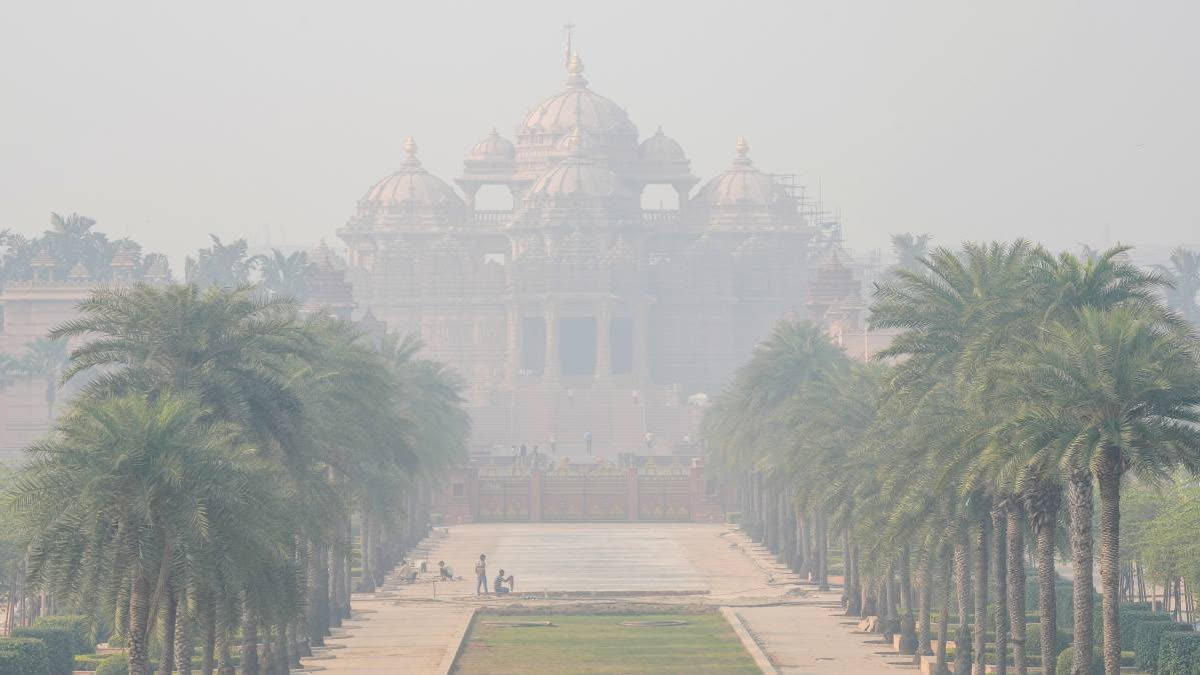New Delhi: The national capital is grappling with alarming pollution levels as the Air Quality Index (AQI) soared to a hazardous 421 on Saturday, posing a severe health risk to its residents. Dominated by PM2.5 and PM10 pollutants, the toxic air raises significant health concerns, particularly for those with respiratory and cardiovascular conditions, children, and the elderly.
Residents across the city are feeling the adverse effects of the deteriorating air quality. Sri, a local resident, shared her daily struggles with ETV Bharat, saying, “A few days ago, it was very polluted, and walking in the morning has become extremely difficult. It affects the eyes, and breathing, and even causes headaches. Every winter, this happens, and while the government claims to be taking action, the situation doesn’t seem to improve. I always advise children and the elderly to stay indoors and only go out with masks when absolutely necessary.”
Saroj Devi, a migrant worker from Gaya, voiced her concerns as she juggles work and family responsibilities amidst the pollution crisis. “We come to work with fear. We leave our children at home but have to earn to pay for their school and hostel fees. When we step out, we wear a dupatta and mask. It’s tough, but we don’t have a choice,” she said.
AQI Breaches Critical Levels
On Friday, the city’s AQI had already climbed to 393 from 371 the previous day, with 22 of 35 monitoring stations reporting “severe” air quality, according to the Central Pollution Control Board (CPCB). By evening, AQI levels breached the 400-mark at 23 stations, signalling an escalating crisis. Vehicular emissions (15.16%) and stubble burning (17.9%) remain significant contributors to the toxic air.
Despite the presence of shallow fog on Friday, a thick haze blanketed the city, reducing visibility and exacerbating health risks. The CPCB identified PM2.5 levels at 194 µg/m³, far exceeding safe limits, with PM10 levels also alarmingly high. These fine particles pose severe health risks, penetrating deep into the lungs and entering the bloodstream.
Supreme Court Demands Accountability
The Supreme Court expressed displeasure over the poor enforcement of Stage 4 restrictions under the Graded Response Action Plan (GRAP). These measures, including a halt on construction activities and restricting non-essential truck entry into the city, are aimed at curbing pollution but have seen lax implementation.
The Court has appointed 13 commissioners to inspect key entry points and assess the enforcement of restrictions. It has also extended the implementation of GRAP-4 measures until at least November 25, emphasizing stricter coordination among departments. Delhi Environment Minister Gopal Rai urged Chief Secretary Dharmendra to ensure compliance with these measures across all sectors.
